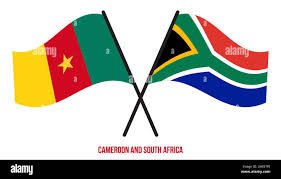
The recent legal and financial challenges faced by prominent Cameroonian businessman Baba Danpullo in South Africa have exposed a troubling trend—the lack of support from his fellow countrymen, and in some cases, even a persistent hostility toward him. This surprising stance raises critical questions about the state of national solidarity and highlights a broader societal illiteracy, amplified by the failings of certain influential groups within the nation.
Understanding Societal Illiteracy
Societal illiteracy refers to the inability of individuals to comprehend and utilize the information necessary to participate meaningfully in social, economic, and civic life. In the context of the Danpullo case, this illiteracy is evident in the general misunderstanding of the legal, economic, and geopolitical dimensions of the situation. It manifests both among the general population and within segments of the elite.
Among ordinary citizens, the lack of support—or in some instances, overt animosity—toward Baba Danpullo can be attributed to several factors:
Misinformation: Many Cameroonians form opinions based on incomplete or inaccurate reports, often propagated by sensationalist or unethical media outlets.
Complexity of the Case: The intricacies of the economic and legal matters involved may alienate or confuse those without a deep understanding of such issues.
Individualism and Disconnection: A pervasive sense of individualism and weak national identity has led many to prioritize personal struggles over collective interests, even when those interests involve a compatriot of national significance.
Absence of a Sacred Union: The lack of a collective instinct to rally behind fellow citizens in times of adversity stands in stark contrast to the unity often observed in other African nations.
Failures at the Level of National Enlightenment
Beyond the general public, the behavior of those expected to enlighten and guide public discourse has been equally disheartening.
The Media: Some journalists and media houses, rather than upholding the principles of objective reporting, chose to align with opposing narratives. They disseminated unverified claims, falsehoods, and biased commentaries, thereby damaging not only Baba Danpullo’s reputation but also the integrity of the press.
Civil Society and Political Elites: These groups, which should play a crucial role in safeguarding national interest, have remained conspicuously silent. Their inaction—arguably a passive endorsement of the attacks against Danpullo—reflects a concerning void in political maturity and civic responsibility.
Conclusion
The Baba Danpullo affair serves as a mirror reflecting the cracks within Cameroonian society. It exposes a lack of unity, a deficient political culture, and an urgent need for national introspection. At its core, it is not just about one man’s misfortunes abroad; it is about a nation struggling to uphold its own.



